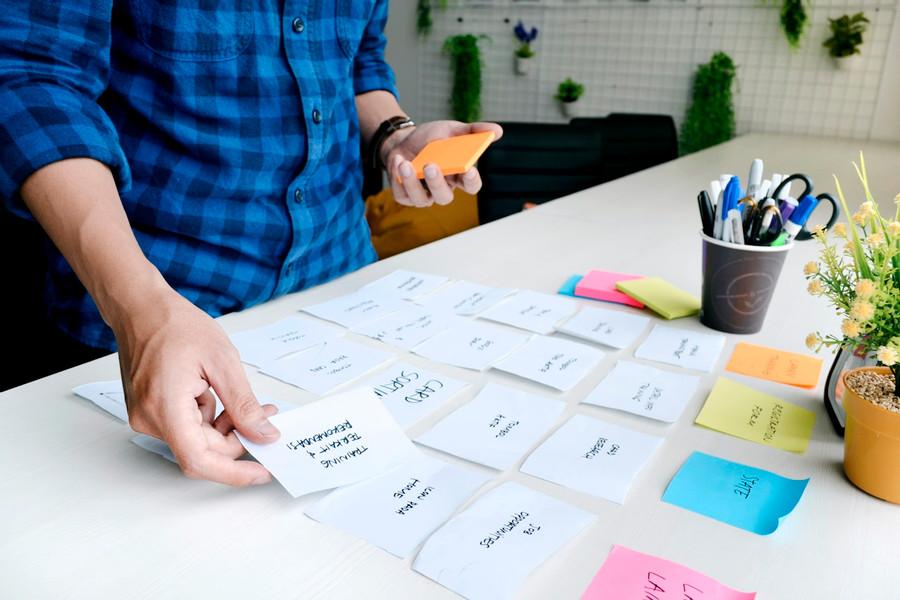Leilani 's Key Ideas from Algorithms to Live By
by Brian Christian, Tom Griffiths
Ideas, facts & insights covering these topics:
11 ideas
·27.6K reads
114
1
Explore the World's Best Ideas
Join today and uncover 100+ curated journeys from 50+ topics. Unlock access to our mobile app with extensive features.
Optimal Stopping
When you are hiring, scouting houses to buy, options to consider — when should you stop looking?
You stop looking too early, you don’t know if someone better isn’t going to come along. You stop too late, you might have passed on the best candidate already.
Mathematically — you should stop looking after evaluating 37% of all the options you’re willing to look at. After the 37% option — if anything/anyone comes along who is better than everyone else before you should make the decision.
432
3.76K reads
Explore vs Exploit
When should you be exploring new options and when should you start settling for the best option you already know? Consider these concepts:
- Regret Minimisation Framework: When you look back on your life when you’re 80, what will you regret least?
- Exploring: In decision making, we consider the single highest pay-off on our single decision, but in the long term, it’s way more efficient to first explore your options, before exploiting the highest pay-off decision.
- Ageing: Deepest insight about later life is that you can exploit knowledge acquired over decades — life should get better over time.
370
2.86K reads
The right action can produce a bad outcome. Process is all we have control over, not results.
BRIAN CHRISTIAN, TOM GRIFFITHS
427
3.59K reads
Sorting
Sorting is one of the most fundamental problems that computers are solving for us
- Bubble sort + Insertion sort: when you put the book in alphabetically against a shelf of books, there is a billion different permutations and options
- Mergesort: when you compare two sets against each other and sort each time, then compare them against the next set
- Bucketsort: putting things into buckets/classifying
- Single elimination: all it tells you is the 1st place, but all other places in the ranking are not truly representative
- Round robin: gives you full information, but also requires the most effort.
353
2.26K reads
Caching / Forgetting
Is a crucial part of computers, human memory, as well as organizing data or your papers on your desk.
- Random eviction: is not half bad, as the most important things keep getting back in
- First In, First Out (FIFO): it’s essentially a queue kicking the oldest things out of the memory
- Least Recently Used (LRU): evicting the item that’s gone the longest untouched (so technically a pile of papers on your desk, is an efficient way of organizing paper if you put the latest always on top)
Ideally, you have a couple of different caches which are organized by category, so you shorten the path of access and
349
1.82K reads
The Human Mind
The human mind does not run out of space, storage is unlimited, but the problem is one of organization. We have an infinite capacity for memories, but we have only a finite amount of time in which to search for them.
Researchers showed that by accumulating more knowledge, we’re getting slower at accessing it. We’re not forgetting, we’re remembering — we’re becoming archives — which need organization and are hard to access.
383
1.93K reads
Seize The Interval
Seizing the day and seizing a lifetime are two entirely different endeavors.
When balancing favorite experiences and new ones, nothing matters more than the interval over which we plan to enjoy them. The interval makes the strategy.
By observing the strategy we can also infer the interval.
349
1.79K reads
Instead of thinking about only the next decision you will make, think about all of the decisions you are going to make about the same options in the future.
BRIAN CHRISTIAN, TOM GRIFFITHS
375
3.2K reads
Scheduling
Scheduling is a fundamental productivity problem.
School of thoughts:
- Getting Things Done: immediately do any task of two minutes or less once it comes to mind
- Eat that Frog: beginning with the most difficult task
- The Now Habit: first scheduling social and leisure time then work
- Wait: deliberately not doing things right away.
391
1.75K reads
Overfitting
Too much information, options, and research are harmful.
There is wisdom in deliberately thinking less and settling for second-best solutions.
360
1.83K reads
IDEAS CURATED BY
Curious about different takes? Check out our Algorithms to Live By Summary book page to explore multiple unique summaries written by Deepstash users.
Leilani 's ideas are part of this journey:
Learn more about books with this collection
Proper running form
Tips for staying motivated
Importance of rest and recovery
Related collections
Different Perspectives Curated by Others from Algorithms to Live By
Curious about different takes? Check out our book page to explore multiple unique summaries written by Deepstash curators:
1 idea
Sushil Bishnoi's Key Ideas from Algorithms to Live By
Brian Christian
29 ideas
K 's Key Ideas from Algorithms to Live By
Brian Christian, Tom Griffiths
Discover Key Ideas from Books on Similar Topics
8 ideas
Hackers & Painters
Paul Graham
7 ideas
Minds and Computers
Matt Carter
14 ideas
Human-Centered AI
Ben Shneiderman
Read & Learn
20x Faster
without
deepstash
with
deepstash
with
deepstash
Personalized microlearning
—
100+ Learning Journeys
—
Access to 200,000+ ideas
—
Access to the mobile app
—
Unlimited idea saving
—
—
Unlimited history
—
—
Unlimited listening to ideas
—
—
Downloading & offline access
—
—
Supercharge your mind with one idea per day
Enter your email and spend 1 minute every day to learn something new.
I agree to receive email updates




